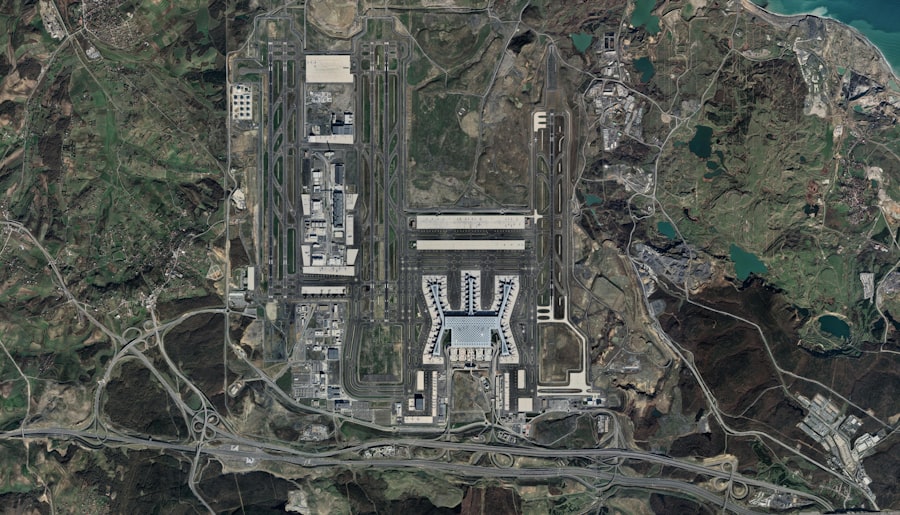The defense industrial base (DIB) serves as the backbone of national security, providing the necessary technologies, systems, and services that enable military operations and defense strategies. Its significance cannot be overstated, as it encompasses a vast network of manufacturers, suppliers, and service providers that contribute to the development and maintenance of defense capabilities. A secure DIB is essential not only for safeguarding national interests but also for ensuring the readiness and effectiveness of armed forces in an increasingly complex global landscape.
The integrity of this sector directly impacts a nation’s ability to respond to threats, maintain strategic advantages, and foster international alliances. Moreover, the DIB is not merely a collection of companies; it represents a critical intersection of innovation, technology, and national policy. As geopolitical tensions rise and the nature of warfare evolves, the importance of a robust and secure DIB becomes even more pronounced.
The ability to develop cutting-edge technologies, such as artificial intelligence, advanced weaponry, and cyber defense systems, hinges on a secure industrial base. Therefore, protecting this sector is paramount for ensuring that a nation can effectively deter adversaries and respond to emerging threats.
Key Takeaways
- Securing the defense industrial base is crucial for national security and military readiness
- Threats to the defense industrial base include cyber attacks, foreign influence, and espionage
- Cybersecurity risks and vulnerabilities pose a significant threat to the defense industrial base
- Foreign influence and espionage can compromise the integrity of the defense industrial base
- Supply chain security is essential for protecting the defense industrial base from vulnerabilities and risks
Threats to the Defense Industrial Base
The threats facing the defense industrial base are multifaceted and ever-evolving. One of the most pressing concerns is the rise of state-sponsored cyberattacks aimed at compromising sensitive information and disrupting operations. Adversaries are increasingly leveraging sophisticated techniques to infiltrate networks, steal intellectual property, and undermine the integrity of defense systems.
These cyber threats not only jeopardize individual companies but also pose significant risks to national security as a whole. The interconnected nature of the DIB means that a breach in one area can have cascading effects across the entire sector. In addition to cyber threats, the DIB faces challenges from economic espionage and foreign influence.
Nations with strategic interests may seek to undermine a country’s defense capabilities by infiltrating its industrial base or manipulating supply chains. This can lead to the loss of critical technologies and a diminished ability to produce essential defense materials. Furthermore, the increasing reliance on global supply chains introduces vulnerabilities that can be exploited by adversaries.
As such, understanding and mitigating these threats is crucial for maintaining the integrity and security of the defense industrial base.
Cybersecurity Risks and Vulnerabilities

Cybersecurity risks within the defense industrial base are particularly concerning due to the sensitive nature of the information involved. Defense contractors often handle classified data related to military operations, weapon systems, and research and development projects. A successful cyber intrusion can result in the theft of this information, leading to significant consequences for national security.
The vulnerabilities within the DIB are exacerbated by outdated systems, insufficient security protocols, and a lack of awareness regarding potential threats. Moreover, many companies within the DIB are small to medium-sized enterprises that may lack the resources to implement robust cybersecurity measures. These organizations often operate under tight budgets and may prioritize production over security, leaving them susceptible to attacks.
As cyber threats continue to evolve in sophistication and frequency, it is imperative for all entities within the DIB to adopt comprehensive cybersecurity strategies that include regular assessments, employee training, and investment in advanced technologies.
Foreign Influence and Espionage
| Country | Number of Espionage Cases | Foreign Influence Activities |
|---|---|---|
| China | 25 | High |
| Russia | 18 | High |
| Iran | 12 | Medium |
| North Korea | 8 | Low |
Foreign influence and espionage represent significant challenges for the defense industrial base. Adversarial nations often employ various tactics to gain access to sensitive information or disrupt operations within a country’s DIThis can include recruiting insiders, conducting surveillance, or utilizing cyber means to infiltrate networks. The consequences of such actions can be dire, leading to compromised technologies and weakened defense capabilities.
As a result, it is crucial for organizations within the DIB to remain vigilant against potential threats from both foreign governments and private entities seeking to undermine national security.
Supply Chain Security
Supply chain security is a critical aspect of protecting the defense industrial base.
Disruptions in supply chains can have far-reaching implications for defense readiness and operational capabilities.
For instance, if a key supplier is compromised or unable to deliver essential components due to geopolitical tensions or natural disasters, it can hinder production timelines and affect military preparedness. Furthermore, reliance on global supply chains introduces additional risks related to foreign influence and espionage. Adversaries may target specific suppliers or manufacturers to gain access to sensitive technologies or disrupt production processes.
To mitigate these risks, organizations within the DIB must implement rigorous supply chain security measures that include thorough vetting of suppliers, continuous monitoring for potential threats, and contingency planning for disruptions.
Strategies for Protecting the Defense Industrial Base

To effectively protect the defense industrial base from various threats, a multi-faceted approach is necessary. First and foremost, organizations must prioritize cybersecurity by adopting best practices such as implementing strong access controls, conducting regular vulnerability assessments, and investing in advanced threat detection technologies. Employee training programs should also be established to raise awareness about potential cyber threats and promote a culture of security within organizations.
In addition to cybersecurity measures, fostering collaboration among stakeholders within the DIB is essential for enhancing overall resilience. This includes sharing information about emerging threats, best practices for risk management, and lessons learned from past incidents. By working together, organizations can develop more effective strategies for mitigating risks and ensuring continuity in operations.
Government Initiatives and Policies
Governments play a crucial role in securing the defense industrial base through various initiatives and policies aimed at enhancing resilience and protecting national interests. One key aspect of these efforts is establishing regulatory frameworks that set standards for cybersecurity practices within the DIBy mandating compliance with specific security protocols, governments can help ensure that all entities within the sector are adequately protected against potential threats. Additionally, government agencies often provide resources and support for organizations seeking to improve their cybersecurity posture.
This can include funding for research and development projects focused on innovative security solutions or offering training programs designed to enhance workforce skills in cybersecurity. By fostering a collaborative environment between government entities and private sector organizations, nations can strengthen their defense industrial bases against emerging threats.
Collaboration with Private Sector
Collaboration between government agencies and private sector organizations is vital for securing the defense industrial base effectively. The private sector possesses unique expertise in technology development and innovation that can significantly enhance national security efforts. By leveraging this expertise through partnerships, governments can gain access to cutting-edge solutions that address emerging threats.
Moreover, fostering collaboration encourages information sharing between public and private entities regarding potential risks and vulnerabilities within the DIThis exchange of knowledge can lead to more effective strategies for mitigating threats and enhancing overall resilience. Joint exercises and training programs can also be established to ensure that both sectors are prepared to respond effectively in times of crisis.
Innovation and Technology in Defense
Innovation plays a pivotal role in securing the defense industrial base by enabling organizations to develop advanced technologies that enhance national security capabilities. As adversaries continue to evolve their tactics, it is essential for defense contractors to stay ahead by investing in research and development initiatives focused on emerging technologies such as artificial intelligence, machine learning, and quantum computing. Furthermore, integrating innovative solutions into existing systems can help bolster cybersecurity measures within the DIFor instance, employing artificial intelligence algorithms for threat detection can significantly improve response times during cyber incidents while reducing human error.
By prioritizing innovation within the defense sector, nations can ensure that their industrial bases remain resilient against evolving threats.
Ensuring Resilience and Continuity
Ensuring resilience within the defense industrial base requires a proactive approach that encompasses risk management strategies aimed at maintaining continuity during crises or disruptions. Organizations must develop comprehensive contingency plans that outline procedures for responding to various scenarios, including cyberattacks or supply chain disruptions. Regular testing of these plans through simulations or exercises can help identify weaknesses in response strategies while fostering a culture of preparedness among employees.
Additionally, establishing clear communication channels between stakeholders ensures that all parties are informed during times of crisis, facilitating coordinated responses that minimize disruptions.
The Future of Securing the Defense Industrial Base
The future of securing the defense industrial base will likely involve an increased emphasis on collaboration between government entities and private sector organizations as they work together to address emerging threats. As technology continues to advance rapidly, staying ahead of adversaries will require ongoing investment in research and development initiatives focused on innovative solutions. Moreover, as geopolitical landscapes shift and new challenges arise, adaptability will be crucial for maintaining a secure DIOrganizations must remain vigilant against evolving threats while continuously assessing their security measures to ensure they align with best practices in an ever-changing environment.
By prioritizing resilience through collaboration, innovation, and proactive risk management strategies, nations can safeguard their defense industrial bases against future challenges while ensuring national security remains intact.
In today’s rapidly evolving global landscape, securing the defense industrial base is more critical than ever. Ensuring the resilience and security of this sector is paramount to maintaining national security and technological superiority. A related article that delves into strategies and measures for safeguarding this vital industry can be found on In The War Room’s website. For more insights, you can read the full article by visiting In The War Room. This resource provides an in-depth analysis of the challenges and solutions associated with protecting the defense industrial base from emerging threats.
🔍WATCH THIS! The Secret Weakness That Will Break The US Military🧭
FAQs
What is the defense industrial base?
The defense industrial base refers to the network of companies and organizations involved in the research, development, production, and maintenance of military equipment and technology.
Why is securing the defense industrial base important?
Securing the defense industrial base is important for ensuring the readiness and capability of the military to protect national security interests. It also helps to safeguard critical technologies and capabilities from being compromised or exploited by adversaries.
What are some potential threats to the defense industrial base?
Potential threats to the defense industrial base include cyber attacks, espionage, supply chain vulnerabilities, and foreign influence operations aimed at stealing or compromising sensitive defense-related information and technology.
How can the defense industrial base be secured?
Securing the defense industrial base involves implementing robust cybersecurity measures, enhancing supply chain resilience, promoting domestic production capabilities, and strengthening partnerships with allied countries to mitigate risks and vulnerabilities.
What role does the government play in securing the defense industrial base?
The government plays a critical role in securing the defense industrial base by establishing policies, regulations, and initiatives aimed at protecting critical technologies, supporting domestic manufacturing, and fostering collaboration between industry and the military.




